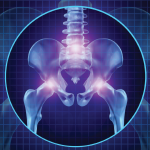Online Resources
More than 500 apps and more than 500 websites on self-management of pain exist. But Dr. Williams noted that not all are effective tools.
“The problem is that the majority of these websites and apps were developed by technology experts and often times without any clinician input or people who know anything about pain,” he said. “They’re very cool technology, but they don’t really have the clinical expertise in terms of what content is being offered.”
An evaluation of 27 websites, using the SMS14 scale that assesses the sites across many categories, found that almost all of them included pain education and often included cognitive behavior skill. Some offered an approach to relaxation or breathing. But only one focused on cultural relevance, so most may be limited to specific audiences, Dr. Williams said.
An evaluation of apps, using both the SMS14 and the MARS (Mobile App Rating Scale), found that only two of 19 had any pain education. The apps did tend to cover relaxation and had more tracking capability, but again no cultural relevance aspect, Dr. Williams noted. The apps were pretty good in terms of graphics and visual appeal and functionality, but not as good on information and engagement.3
Pain Guide, a free online tool developed at the University of Michigan, offers education on types of pain care and self-management, as well as symptom and activity tracking that allows patients to track multiple symptoms and see how they align or diverge. If a person logs better sleep and sees reduction in pain reduces the same time, it may reinforce the patient’s motivation to improve their sleep habits.
Overall, self-management tools are demonstrating their effectiveness; the struggle is keeping patents interested and engaged.
“We have some work to do, academically, on the side of engagement and retention,” Dr. Williams said. “We know these things work; we just have to develop interventions that will allow folks to be more engaged with them so they’ll stay with them for the long haul.”
Virtual Reality
Brandon Birckhead, MD, MHDS, a psychiatry resident at Johns Hopkins University School of Medicine, Baltimore, studies immersive technology. He addressed the use of virtual reality for pain self-management, noting that evidence exists that it may be effective, but research and refinement are ongoing.
“This [approach] is a computer on your face—it is getting better and better, from the early 90’s to the modern era now, but still a way to go,” he said.

